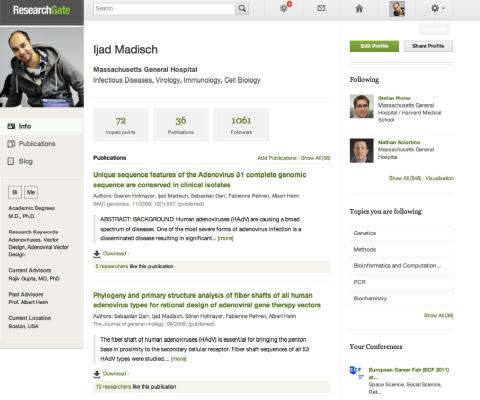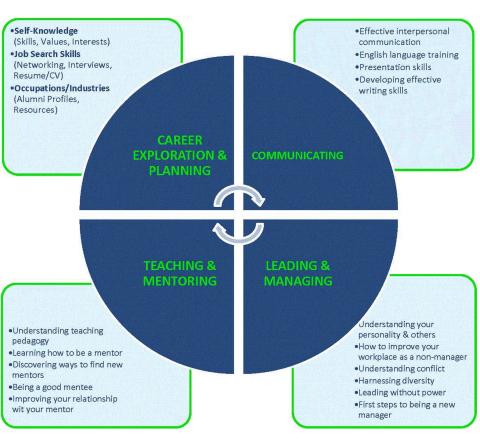Recently a few trainees have inquired about ResearchGate, so we decided to take a further look at this site. It was founded in 2008 by two physicians who discovered that collaborating with a friend or colleague (especially one across the world) was no easy task. They created this website with the intent of helping make scientific progress happen faster.


Have you drafted a career plan? Do you know if you have the required skills for your dream job? Figuring out the next step in your career and how to prepare for it can be stressful. But developing a plan, early on in your career, will help guide you through this process of identifying and achieving your career goals. This year, the OITE will be dedicating its blog to help you develop a Career Success Plan, focusing on a variety of core competencies that are critical for your career development, the first being career exploration and planning.

Career assessments are valuable tools to help you during your career exploration and planning. They can be a great starting point and the results can help you think more deeply about your own personal preferences and career interests. Two formal assessments are the Myers-Briggs Type Indicator (MBTI) and the Strong Interest Inventory. To take these assessments, questions are answered online and then the results are shared and discussed during an appointment with a career counselor.


2013 is quickly coming to a close and the approach of a new year can be a great time to reflect – not only on the past year, but also on what you hope to accomplish in the coming year. Inspired by year in review montages we have already begun seeing, we decided to take time to reflect on this year as well, specifically on some of the best career resources at one’s fingertips in 2013. This is not an exhaustive list, nor is it in rank order. As always, we would love to hear your input – please share your very own “Best of 2013” resources in the comments. 1.

In the first part of this series, we talked about how to identify a good mentor. Now that you have done so, how do you cultivate and maintain that relationship? Identifying a mentor is not an easy task; making it work can be even more challenging. In this blog, we will give you some tips to help foster and maintain your mentoring relationships. Take ownership of your career Take charge; remember you are the one in control! Think about your career goals in the short-term and long-term.

Getting the right degree for the career you want is not as easy as you might think. Many believe a PhD is always better than a master’s degree. However, depending on what you want to do, having a master’s degree can put you in a better position to get a job. Just like any decision, it is important to consider all the factors before making a decision on which degree is best for you. There are distinct differences between most master’s degree programs and PhD programs. Degree Purpose: In general, a PhD program is not designed to get you a job.

‘Tis the season for academic faculty job searches. From summer until late fall, the bulk of faculty jobs are accepting applications to fill positions that begin in the fall of the following year. If you are considering this route, here are some things you need to think about:
Pondering a career in industry? Then you need to be aware that the industry job offer may contain elements not part of offers in academia, government or non-profits; industry jobs often include a profit sharing plan.
Industry profit sharing takes two basic forms; dividends, a cash payment made to employees and share-holders based upon the performance of the company, usually on an annual basis, and equity, the actual ownership of shares of the company. Equity in a company is granted by one of the following methods:
As you get ready to end your summer internship or your summer rotations as a grad student, don’t forget to keep in touch.

